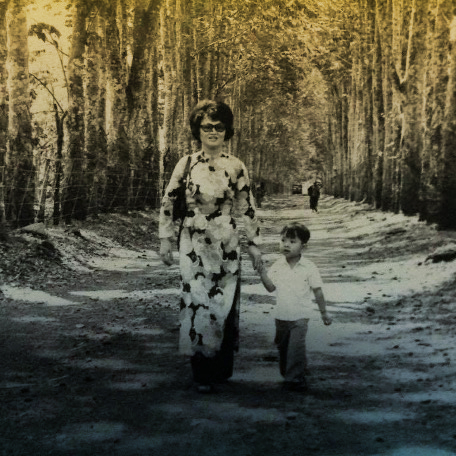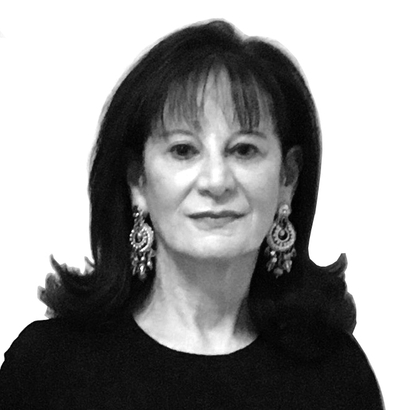I thought of Virginia Woolf when 92NY (formerly the 92nd Street Y) called off an event featuring Viet Thanh Nguyen last week because he had joined hundreds of other artists in signing an open letter in the London Review of Books that called for an immediate ceasefire and was highly critical of Israel. (Some staff members of 92NY’s Unterberg Poetry Center, where Nguyen was scheduled to appear, resigned in protest.)
Tugged at by historical paradox and personal history, memory is, for Nguyen, never a single thread and is often a political statement, and in A Man of Two Faces, his ineluctable new memoir, he does a dazzling job of embedding Woolf among the many ambiguities he has confronted over his career, beginning with his first novel, The Sympathizer, for which he won a Pulitzer Prize. Woolf, he writes—the East India Company up her family tree—afforded “that room of her own through five hundred pounds a year willed to her by an aunt in Bombay.”
India, let’s not forget—and Nguyen doesn’t let us—was still part of the British Empire, and Woolf the beneficiary of the kind of colonialist exploitation that also held true for Vietnam, a piece of French Indochina primed for the chapter of American imperialism that ended in a war synonymous with its name.

Nguyen’s parents—their separate monikers conflated into a shared “Ba Má” throughout the memoir, as is the Vietnamese custom—were a devoted young Catholic couple in the country’s north, swept south in 1954 when it was divided and 800,000 Vietnamese Catholics, led by their priests and encouraged by shadowy C.I.A. forces, arrived to provide the power base of a Catholic president, Ngo Dinh Diem. We know how well that turned out. But in Nguyen’s telling—elegant, erudite, sometimes poetry-and-Twitter-shaped, conversant in every movie ever made about Vietnam and the realities it twisted—nothing and everything seems the same.
By 1975 Ba Má were in flight again, a four-year-old Viet and his older brother, Tung, with them, and a new, indelible status stamped on their future with the finality of the famous image from the fall of Saigon: the “picture of the helicopter on a roof, a line of human beings who are becoming refugees climbing up a ladder.” Cue, as Nguyen does, “The End” by the Doors, from Apocalypse Now.

To have fled from, Nguyen would learn, stood in humiliating contrast with immigration to, which, romanticized down the generations, has been given mostly a European face not at all kindly disposed to the current waves he watches pouring out of the globe’s latest upheavals. Roaming Western culture, and the power structures behind it, he interrogates Frantz Fanon and Full Metal Jacket, the Kennedy Library and Richard Pryor, keeping score of the worst and best intentions.
A new spate of family photographs would try to put a happy face on the following decades, as Ba Má settled but never really felt accepted in San Jose, California. Their SaiGon Moi grocery store, in a volatile, shabby downtown, was their source of income, fear, and daily deliveries of anti-Asian prejudice—the most primitive form of the “othering” that Nguyen has made a central subject of this book.
As visually astute as he is with words, he loads the snapshots and their “faded Polaroid” color scheme into his boundless archive of the ordinary and the esoteric. Gut-checking them against what life and scholarship have taught him, he parses “the American Dream™” and finds it severely wanting.

The memoir gets its title from the opening line of The Sympathizer. “I am a spy, a sleeper, a spook, a man of two faces”: the narrator doubles as a Vietnamese double agent in Los Angeles, confronted by a double cross. Prepositions matter as much to Nguyen as his memoir’s bigger, mind-bending picture. Two-faced would be a man with two faces. Instead, it describes his endless struggle to protect his dual identity—Vietnamese American—from the creep of split personality. An American citizen, he is never permitted to see himself simply as just that. Once “Fresh Off the Boeing,” always Fresh Off the Boeing.
Roaming Western culture, and the power structures behind it, Viet Thanh Nguyen interrogates Frantz Fanon and Full Metal Jacket, the Kennedy Library and Richard Pryor.
Did winning the Pulitzer gain him purchase nonetheless? It did in his father’s eyes—but his focus were the sales numbers. Did a MacArthur award? Did a string of acclaimed books: the collected stories in The Refugees (2017); The Committed (2021), a follow-up to The Sympathizer? Or, as of this fall, giving the Norton Lectures at Harvard?

Dip into Facebook, and there’s more almost every day. The introduction Nguyen just published to the newest English edition of Marguerite Duras’s The Lover, the announcement of his next children’s book and of this memoir’s launch in Hollywood. What about the upcoming HBO series adaptation of The Sympathizer, which couldn’t be shot in Vietnam because the regime there has deemed the story inconsistent with “the revolutionary cause of national liberation and reunification?” A Man of Two Faces does not respond affirmatively.
One allowance Nguyen makes is for his enjoyment in writing a picture book, Chicken of the Sea (2019), with his young son, Ellison, named after Ralph Ellison and in honor of Invisible Man. He credits his sense of fulfillment in fatherhood, and in marriage, for breaking down his longtime resistance to the autobiographical, to the honesty it requires, the emotions it dredges up, and the layers of repressed memories it peels back.
“You cannot remember who you were when your mother was not who she was,” he writes of the sudden mental break that committed Má to a nightmarish Asian Pacific Psychiatric Ward when he was a college sophomore. The memoir restores the memory. He sees that “forgetting can be a blessing” but knows that “scarred enough” is the minimum requirement for the writer he wants to be.
As is serio-comic timing. Nguyen repeats a version of the joke “a B+ is an Asian F,” not just because learning was held in high esteem in the cultures that Ba Má carried with them, but because, a kind of spiky haiku, it forewarns the slender bridge slung hopefully across America’s racial fault lines. In Nguyen’s experience—picked-on Jesuit-school boy, Berkeley firebrand, tenured academic, literary superstar—it will always span troubling waters.
“This is a war story,” he maintains, and it’s hard to disagree. It has sent him mucking about in history again, this time in the Middle East. Yet, from battles, as Nguyen also writes, “You construct a literary inheritance for yourself.” There, he’s not entirely right. No matter where one’s sympathies lie, his act of construction is for all of us.

Celia McGee is a New York–based arts-and-culture reporter. She writes regularly about books for The New York Times and other publications


